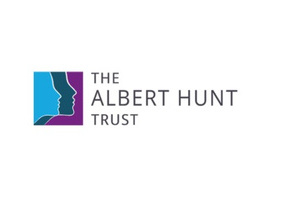Lankelly Chase sparked debate in the charity sector last month by announcing plans to close in the next five years and redistribute its more than £100m of assets. Shortly afterwards, the Albert Hunt Trust declared its own decision to close and spend its around £50m of assets over the next six years.
These decisions have different roots, with Lankelly Chase deciding abolition is the way forward, due to its traditional philanthropy model being “entangled with colonial capitalism”. It is aiming to redistribute assets. Meanwhile, the Albert Hall Trust says it is reacting to a current need for them to expend all of their assets during the cost-of-living crisis.
Reaction was mixed, with some stating this action may harm the communities who previously benefited from these charitable foundations, and others praising the decisions as bold and necessary. Notably, Lankelly Chase and Albert Hunt Trust both said that while they had decided closing made sense for them, it is not necessarily the right step for all other trusts.
Carol Mack, chief executive at the Association of Charitable Foundations (ACF), says: “Endowed foundations like the Albert Hunt Trust and Lankelly Chase have got the freedom to spend capital in pursuit of their mission.
“In each case, it’s that foundation’s response to its charitable mission. And within that, that’s what the trustees have decided is the best way to achieve that mission in the current context.”
Mack notes that other foundations have taken similar steps previously such as the Diana, Princess of Wales Memorial Fund, which stopped operating in 2012 after 15 years.
“It’s not an unusual thing to do, though it’s also fair to say that there are not hundreds of foundations doing that,” she says.
Lankelly Chase: ‘Traditional philanthropy model entangled with colonial capitalism’
In its announcement, Lankelly Chase said it would wholly redistribute its assets over the next five years, after over 60 years of operating as a charitable grant-making foundation.
It started by transferring £8m of its capital to the Baobab Foundation, a Black-led community benefit society set up in 2020 that aims to “significantly scale resourcing to Black and Global Majority communities in the UK”.
Lankelly Chase said it viewed the traditional philanthropy model as “so entangled with colonial capitalism that it inevitably continues the harms of the past into the present”.
“We acknowledge our role in maintaining this traditional model and know that these times demand bold action from us all in charitable organisations,” it said, but added: “We know not everyone will agree with this decision, and we are not saying every endowed foundation should follow our direction.”
Richard Garside, director of the Centre for Crime and Justice Studies (which previously received funding from Lankelly Chase), questioned the foundation’s decision to close in a recent blog.
“The Lankelly Chase Foundation can abolish itself. It cannot abolish the dynamics of capital accumulation it finds so troubling. The new custodians of its wealth will face exactly the same dilemmas the Foundation’s trustees concluded they were unable to resolve,” it reads.
“If things go according to plan the new custodians of the Foundation’s assets will continue and deepen its work, shorn of the baggage of what it considers a discredited philanthropic model and less tainted by the stain of ‘colonial capitalism’.
“For reasons already given, this strikes me as an unrealistic expectation. As the Foundation itself acknowledges, its bold plan could also fail, even on its own terms. The result could well be of fragmentation, declining financial assets and lost opportunities.”
Mack of ACF says: “There have been some foundations that have been concerned about funding racial equity work for many years. But like many other sectors, that work got much more prominent and focused in the wake of Black Lives Matter, the murder of George Floyd and the impact of the Covid crisis having a disproportionate impact on Black and minority ethnic communities. I have seen that focus sharpen and I think that will continue.
“It’s interesting that Lankelly Chase themselves have been really keen to emphasise they don’t think all foundations should do this, or that this is the solution for all foundations. It’s important to keep a sense of perspective.”
‘Foundations should question their reason for existing’
Jane Deller Ray, operations manager at the Albert Hunt Trust (AHT), says that while foundations “should question their reason for existing”, the charity sector relies on these organisations. Indeed, foundations have been a “constant” and provided regular funding at times when other giving was compromised because of the Covid-19 pandemic and the cost-of-living crisis.
“If all foundations suddenly closed, then there would be a big gap. But there is also an opportunity for some quite significant transformational funding that could make a huge difference to civil society as well.
“Trusts and foundations should look at their reasons for being and whether their pot of money could be working better to achieve their objectives, and whether they could be more open and more straightforward.”
She says the financial, social and environmental climate have created a “perfect storm” for all foundations to question their existence but suggests other options are available such as “providing unrestricted core funding to the sector”.
AHT: ‘Business as usual for the next couple of years’
Deller Ray says the AHT’s plan to spend all its assets came about organically. It began to review its strategy in 2019, and set up a website to be more “open and transparent in how we operated”, which in turn led to more charities asking it for support.
“Just organically, our grantmaking increased, more people approached us, more people found us online – so we naturally started spending more money in the first place.”
It put its strategy review on hold during the Covid-19 pandemic as requests for funding increased even more.
“We increased our spending further at that point, responding to the demand that was out there. And we proactively supported, in particular, the hospice sector by getting more funds out.
“During this time, we were still considering our long-term plans. The Trust came through the pandemic and went straight into the cost-of-living crisis, and the need for our funds were just as much, and more so.
“We realised that actually, if we carried on spending at the rate we were spending we would naturally spend down.”
AHT wanted to carry on getting unrestricted core funding out to the sector, at the level it was doing, and to “be more strategic in how we carry on with the level of spending” and reach that natural spend down “but in a very controlled way”.
It then looked at what would be a good timeframe, and decided on its 50th anniversary in 2029. The foundation is now in the process of working out how it will spend its remaining assets.
“We are very much business as usual for the next couple of years,” says Deller Ray.
“We will make sure people are aware of what availability there is as we develop our plan. I’m sure we’ll be seeking professional input into facilitating our strategy talks as well. I will be valuing expertise from the sector.”
‘Hospices will feel the loss of the trust’
Karl Benn, head of grants at Hospice UK, said AHT’s funding during the pandemic was “invaluable, it felt like the door was always open if hospices needed them”.
Similarly, they have been keeping in close contact during the cost-of-living crisis, so “their commitment to supporting hospices through tough times has been steadfast”.
“Hospices will feel the loss of the trust as a regular funder, but it’s understandable that the trustees are looking at how the trust can best support its aims,” says Benn.
“Over the years we’ve been grateful for the trust’s support and valued their willingness to have open and honest conversations. We know their plans will be rigorously thought out to ensure their final round of funding continues their impressive impact and legacy.
“Trusts and foundations have a special place in our communities, the funding decisions they make impact the lives of people across the UK.
“It can be sad to see one spend-down but Hospice UK is privileged to have had their support over the last few years. The opportunity this courageous move gives can be profound, though, leaving society better equipped to tackle the challenges it faces.”
Not possible for all foundations to close
On whether every foundation should follow this direction, Mack says that some foundations legally cannot.
“If you are a permanently endowed foundation, then you have to preserve the capital and just spend the income. So, the way permanently endowed foundations are set up, requires them to take an intergenerational approach and balance current needs with future needs,” she says.
“If the foundation doesn’t have permanent endowment there, it’s really for the trustees to have the responsibility to determine what’s the most effective way of pursuing their mission. And I think that's the most important point, what is your mission? And how can it most effectively be achieved? And that’s the same with any other charity that’s got resources to spend in pursuit of its mission.
“So, for example, if you’re set up to tackle climate change, then you need to be doing that now, there is an urgent, perhaps a unique opportunity, to make a difference now that will have a long-lasting effect. But if you’ve got a mission that’s about something like, for example, education, that’s an ongoing issue. I think the key question for trustees to ask themselves is ‘what is going to deliver the mission of this charity most effectively now and in the future’?”
Shrinking foundation sector?
Mack says that while Lankelly Chase and AHT’s impending closures are significant, it is important to keep their respective grantmaking in context.
According to ACF’s latest Foundation Giving Trends research, the Albert Hunt Trust gave around £4.5m in 2020-21, while Lankelly Chase offered £9m.
“Those are significant amounts of money, but in the context of the largest 300 philanthropically funded foundations in that year, Albert Hunt Trust and Lankelly Chase combined was 0.4% of the total giving by the top 300 foundations,” says Mack.
“And in that same year, two family foundations that were new to the table gave £33m between them, and there were 11 foundations that saw increases in donations from their founders and from their trustees of over £10m each. So, it’s quite a dynamic sector.”
Alternative actions
Mack says the priority for most of ACF’s 450 members is responding to the cost-of-living crisis.
“What I hear is that foundations are seeing greater demands on their funding, an increased volume of applications in terms of numbers, and also in terms of the amounts that are being asked for.”
“Whatever the foundation’s response, what unites them is the fact that they by and large have endowments, and having an endowment means that you can dig deep when times are tough.”
ACF’s Foundation Giving Trends research shows that when Covid-19 lockdowns took place in 2020-21, foundations increased their grant making by 13% in real terms to an all-time high of £3.7bn.
Mack says foundations are similarly “stepping up their support in response to the cost-of-living crisis”, including increased grantmaking and changing their investment policies.
“It’s now the norm for foundations to have investment policies that make a link between the way their endowments are invested and their mission, that might be through divestment or impact investing, or it might simply be shareholder engagement.”
Mack says more foundations worked in partnership during the Covid-19 pandemic but that the conversation about how trusts can make the best use of their assets are not new.
“What is different is that there is a long-term trend to use your endowment to help you achieve your mission, so that is definitely moving in one direction,” she says.
“It will continue to be a trend to look at how you make best use of all your resources and assets.”











